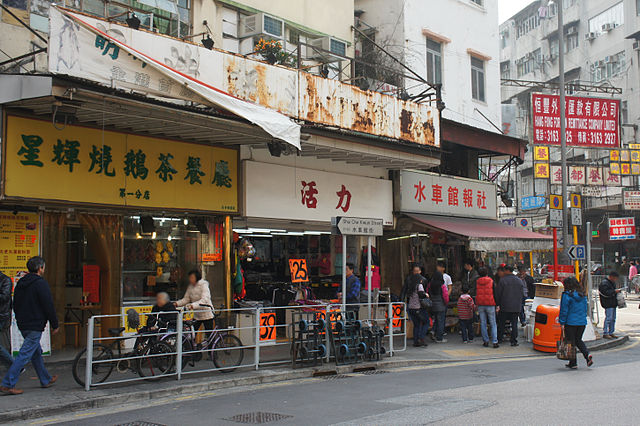
Thammasat University students are cordially invited to participate in a free Zoom event on Transnationalizing Transgender.
The Thammasat University Library collection includes many books about different aspects of transgender life and experience.
The event will be held on Wednesday, 23 February starting at 6pm Bangkok time.
It is organized by the Faculty of Arts, The University of Hong Kong (HKU).
Students may register to receive a Zoom link at this link:
https://hkuems1.hku.hk/hkuems/ec_regform.aspx?guest=Y&UEID=79731
For further information or with any questions, please write to
gchallen@hku.hk
As the webpage announcing the event explains,
This talk demonstrates that studying queer Hong Kong requires an alternative framework of “queer globalities.” Conceptually, queer globalities illustrates the convergent dynamics of global queer rights discourses, local geopolitics, and pink dollar industries within the global modernities of queer Asia. The first part of this talk offers a queer transnational analysis of the transgender film “Tracey” (2018) by mapping the condition of being transgender through multiple queer temporalities and transnational spaces. The next section offers a critical legal analysis of LGBT rights in Hong Kong. If “Tracey” tells the transwoman narrative of Tai-hung through its linkage to global discourses of gay rights and queer migration, “A Woman is a Woman” (2018) directed by Maisy Suen cannot be more different. The film narrates the struggle of a married transwoman named Sung Chi Yu and the life of a high school feminine boy Chiu Ling Fung, who is considering to undergo sex reassignment surgery. In November 2020, the film producer Mimi Wong also successfully launched a series of transgender photo exhibition and public workshops inspired by the film. Overall, this paper considers the “trans” of transgender as a prefix that highlights transnational movement, trans-mobility, and trans-medial creativity.
The speaker will be Assistant Professor Alvin K. Wong, who teaches comparative literature at HKU.
The respondent will be Dr. Brenda Rodriguez Alegre, lecturer in the Gender Studies Programme, School of Humanities, Faculty of Arts, HKU.
The moderator will be Dr. Maria Mercedes Vazquez Vazquez, Lecturer and Honorary Assistant Professor, Spanish Programme, School of Modern Languages and Cultures, HKU.

Last year, the South China Morning Post and other Hong Kong media reported on a published survey of 234 transgender people in Hong Kong between 2019 and 2020, the largest survey on the population in Hong Kong so far.
The survey, conducted by the Sexualities Research Programme of the Chinese University of Hong Kong, in collaboration with the Transgender Resource Center (TRC), found that:
Rejection, victimisation and discrimination were the rule rather than the exception in many transgender people’s lives in Hong Kong. 76% of the respondents reported facing rejection in different dimensions of social life in their lifetime. 62% of the respondents reported having experienced different forms of victimisation in their lifetime. 51.1% of the respondents reported facing discrimination in at least one of the following four domains in the previous year: Employment (34.8%), education (34.8%), provision of goods and services (36.9%) and disposal and management of premises (26.2%).
Transgender people in Hong Kong reported great difficulties in using a toilet which matches their self-identified gender, or even simply accessing toilets in public spaces. Worse still, when using the toilet, transgender people in Hong Kong were subjected to verbal assault, physical violence, or even sexual contact against their wishes.
A substantial proportion of the respondents had not undergone, were not sure or did not want to undergo gender-affirming medical interventions because of a variety of reasons, which means they were excluded from being eligible for a change of the sex entry on the identity card sex entry based on the current regulations set out by the Hong Kong government. Only 5.6% of the respondents had changed the on their identity card, and another 6% said they were in the process of doing so. 75% agreed that the government should recognise non-binary gender options.
All of such social and legal marginalisation took a toll on the transgender people’s mental health in Hong Kong. 42.8% of the respondents showed moderate-to-severe levels of depressive symptoms, and 34.7% showed moderate-to-severe levels of anxiety symptoms. Besides, 31.2% of the respondents reported non-suicidal self-injurious behaviour in the past 12 months. There were 76.9% of them contemplated suicide, 25.6% made a suicide plan, and 12.8% attempted suicide in their lifetime. However, transgender people displayed agency and one-third of them took action to resist when facing transgender-related discrimination/cisgenderism.
Media coverage of related issues demonstrates that the TRC’s study is evidence of a societal need for the stated aims of the aim of TRC:
Transgender Resource Center (TGR), is founded on 1 July 2008. We are committed to promote the awareness of transgender population and related service in Hong Kong and mainland China. Begin with education, we provide information and resources to the public and to the transgender community. This helps our society to have a better understanding of transgender issues, and allow transgender people to get proper assistance.
Before TGR was registered as a society, we have always been actively involved in sharing our experience about gender issues in universities of Hong Kong. Until now, we have organized and participated in nearly three hundred seminars and workshops. We also participated in interviews on radio, television, magazines, newspapers and other media and presenting a positive transgender identity in public. We have always been in close contact and cooperation with the the government, the health sector, legal institutions, counseling team, Christian organizations and other services. TGR’s work is mainly divided into community service, public education, publishing and research.
The report’s recommendations follow:
Rejection, victimisation and discrimination against transgender people are deeply rooted in
public misunderstanding and stereotypes against transgender people in society. Despite research showing that public attitudes towards transgender people in Hong Kong are turning more positive in Hong Kong, a lot remains to be done to enhance public understanding of transgender people. Education and awareness-raising are urgently needed.
51.1% of the respondents reported facing discrimination in at least one of the following four domains in the previous year: Employment, education, provision of goods and services, and disposal and management of premises. This adds to previous research which shows that transgender people face substantial discrimination in Hong Kong, and legislation against discrimination on the grounds of gender identity is urgently needed.
41.5% of the respondents reported having experienced different forms of negative treatment when they went through the customs in the previous year. As Hong Kong often claims to be an international world city, the mobility of transgender people into and out of Hong Kong is a topic that needs to be addressed. This shows the wider need for training for service providers in public and private sectors.
The research findings also revealed that transgender people faced substantial issues when they used the toilet. Access to accessible toilets and gender-neutral toilets needs to be enhanced.
A substantial proportion of the respondents had not undergone, were not sure or did not want to undergo gender-affirming medical interventions because of a variety of reasons, which means they were excluded from being eligible for a change of the sex entry on the identity card based on the current regulations imposed by the Hong Kong government. The legal gender recognition debate needs to consider transgender people’s concerns and selfdetermination. The findings suggest that an overwhelming majority of transgender people in Hong Kong are excluded from being eligible for a change of the sex entry on the identity card based on the current regulations adopted by the Hong Kong government, which fundamentally affect their civil, political, economic, social and cultural rights.
The level of mental health issues that the respondents reported shows that mental health support for transgender people is urgently needed. 37.3% of the respondents often/always took action to resist when they encountered transgender-related discrimination/cisgenderism. This shows the agency of transgender people, and that there is the potential to further mutual support among transgender people.

(All images courtesy of Wikimedia Commons)
